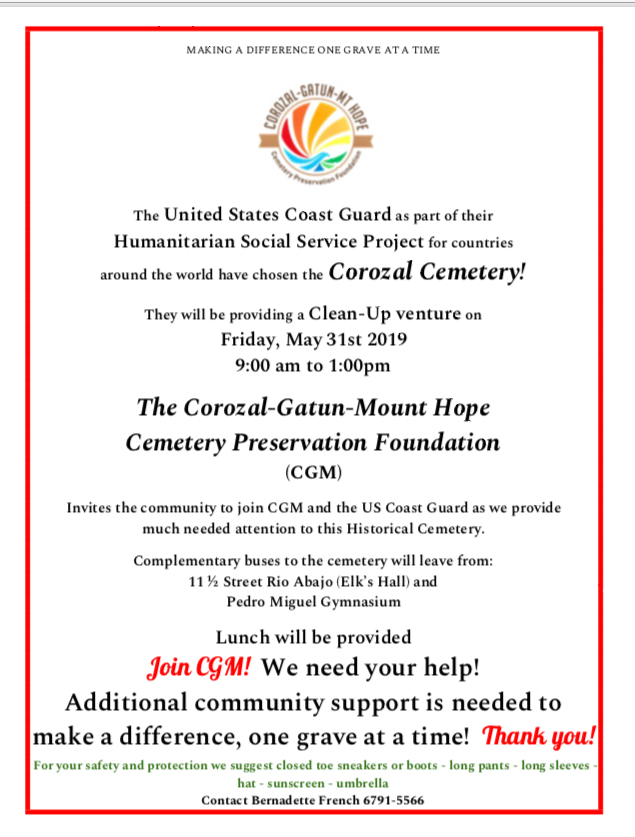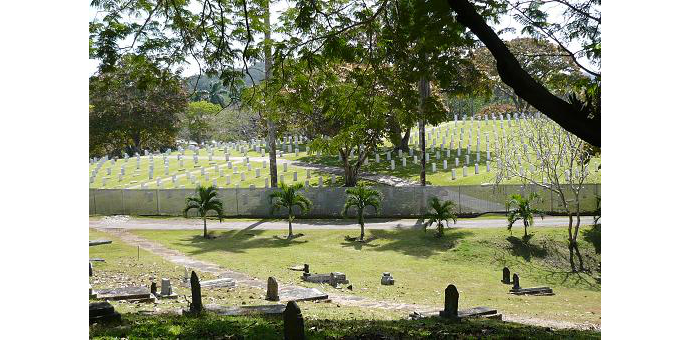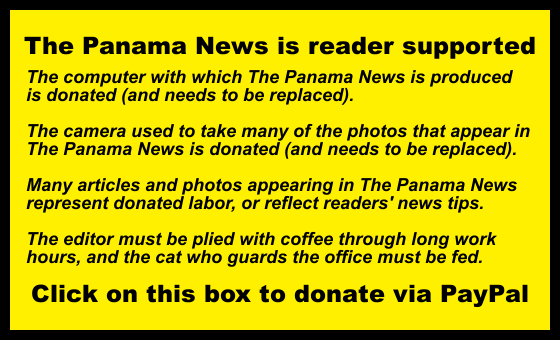Two Corozal graveyards — the Panamanian-run old Silver Roll Canal Zone burial ground
in the foreground, with the US-run American cemetery behind that. SERTV photo.
Living memory in a place that would forget
Editor’s note: The old Canal Zone was always racially segregated, although that began to break down a bit during the Republican administration of an old soldier who had served here and knew about Panamanian and Canal Zone society, Dwight D. Eisenhower. Where the mainly West Indian majority of the Canal Zone’s civilian population and the American minority of that enclave’s civilians were buried remained segregated until the end in 1979, when the white section of the Corozal Cemetery was deeded to the United States and became the American Cemetery and the nonwhite section was turned over to Panama.
Panamanian mainstream culture has attitudes that are very different from both North American and Antillean ones regarding cemeteries. The contrasting values are of a vanity service business for families and of a priceless repository of a community’s history.
At the outset US citizens who worked for the Panama Canal were paid in gold and all other employees in silver, such that even after that method of payment lapsed the Gold Roll versus Silver Roll distinction and often nomenclature survived.
When Panama City tried to turn the Silver Roll graveyard into a business, it not only was unprofitable but the practice of digging up the remains of people whose families had not paid was taken as quite offensive by a lot of people, many of them families of the deceased who had relocated to the United States.
Eventually that part of the Corozal Cemetery was declared a national historical monument and put in the care of the National Cultural Institute (INAC), which was not given an appropriate maintenance budget and on some shifts run by rabiblanco socialites who could not care less. It has been left to volunteers to maintain the cemetery as well as possible. The police academy cadets will cut the grass when it gets overgrown. There are other Panamanian volunteers. Mostly, though, the cemetery has been adopted by the Afro-Antillean community here and in the States, and Friday is one of their periodic graveyard cleaning and maintenance days.


Click on / Toque en cgmcemeteries@gmail.com
These links are interactive — click on the boxes













